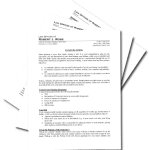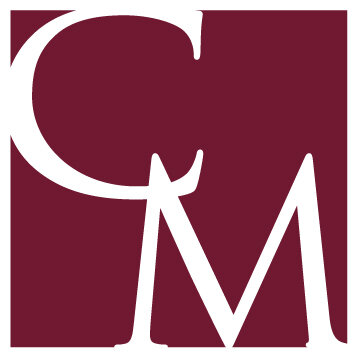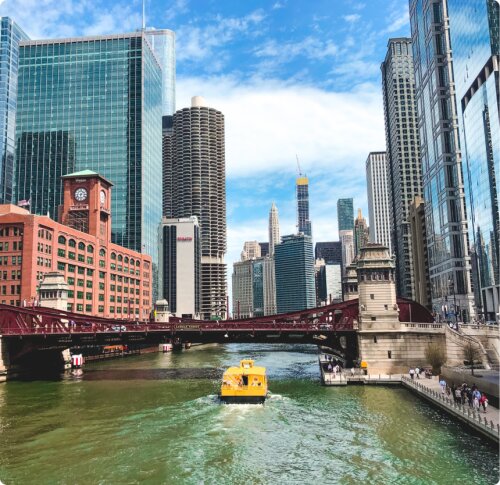Best Nursing Home Abuse Lawyers in Illinois
Share your needs with us, get contacted by law firms.
Free. Takes 2 min.
Or refine your search by selecting a city:
List of the best lawyers in Illinois, United States
About Nursing Home Abuse Law in Illinois, United States
Nursing home abuse in Illinois refers to any intentional or negligent act by caregivers or nursing home staff that causes harm or distress to elderly residents. This abuse can take many forms, including physical, emotional, sexual, or financial exploitation, as well as neglect. Illinois law recognizes the vulnerability of nursing home residents and has established guidelines and regulations to safeguard their well-being. Victims and their families have legal options to seek protection and compensation for harm suffered in these facilities.
Why You May Need a Lawyer
Victims of nursing home abuse and their families often require legal assistance to protect their rights and hold negligent parties accountable. Situations where a lawyer may be needed include:
- Obtaining medical records and documenting evidence of abuse or neglect
- Navigating complex state and federal regulations that govern care facilities
- Filing complaints with regulatory agencies or pursuing civil lawsuits
- Negotiating settlements with nursing homes or their insurance companies
- Advocating for the removal of a loved one from an unsafe environment
- Pursuing compensation for medical bills, pain and suffering, or wrongful death claims
Legal representation ensures that victims' voices are heard and increases the likelihood of a successful outcome.
Local Laws Overview
Illinois has strict laws designed to protect nursing home residents and penalize abusive or negligent staff and facilities. The Illinois Nursing Home Care Act is a key statute, providing specific rights and protections for residents. Important legal aspects include:
- Resident Rights - The law guarantees rights to privacy, dignity, and freedom from abuse or neglect.
- Reporting Requirements - Nursing homes must promptly report suspected abuse, neglect, or exploitation to authorities and family members.
- Inspections and Penalties - Facilities undergo regular inspections. Violations can lead to fines, license revocation, or criminal charges.
- Private Lawsuits - Victims or families can sue for damages and attorney’s fees under civil law.
- Mandatory Arbitration Clauses - Some facilities ask residents to sign arbitration agreements, which can affect legal options. An attorney can help assess these agreements.
The Illinois Department of Public Health (IDPH) oversees compliance and handles complaints against licensed facilities.
Frequently Asked Questions
What are common signs of nursing home abuse?
Warning signs include unexplained injuries or bruises, sudden weight loss, bedsores, fearfulness around staff, poor hygiene, and sudden changes in financial accounts or legal documents.
What should I do if I suspect nursing home abuse?
Document your concerns, take photographs if possible, speak with your loved one, and report the suspected abuse to facility management and the Illinois Department of Public Health. Consider contacting an attorney for further guidance.
Who is legally responsible for nursing home abuse?
Staff members, facility administrators, and sometimes the corporate owners of the nursing home can be held accountable, depending on the circumstances and the extent of the abuse or neglect.
What is the time limit for filing a lawsuit for nursing home abuse in Illinois?
Illinois generally provides a two-year statute of limitations from the date the victim or their family discovered the abuse or neglect to file a legal claim. Exceptions may exist in certain situations.
Can I report nursing home abuse anonymously?
Yes, you can make anonymous reports to state agencies such as the Illinois Department of Public Health or Adult Protective Services.
What compensation can victims of nursing home abuse receive?
Victims may receive compensation for medical expenses, pain and suffering, wrongful death, and sometimes punitive damages meant to punish the facility or staff for severe misconduct.
Are there criminal penalties for nursing home abuse?
Yes. Individuals responsible for abuse or neglect may face criminal charges, which can result in fines, loss of license, or imprisonment.
Does the government inspect nursing homes in Illinois?
Yes. The Illinois Department of Public Health regularly inspects licensed nursing facilities for compliance with health and safety regulations.
What if the nursing home asks us to sign an arbitration agreement?
Arbitration agreements can limit your right to take the facility to court. It is important to review such agreements with a qualified attorney before signing.
Can I move my loved one from a facility if I suspect abuse?
Yes. You have the right to remove your loved one from a facility at any time. Seek alternative care and report your concerns immediately to the appropriate authorities.
Additional Resources
- Illinois Department of Public Health (IDPH) - Oversees nursing home regulation and investigates complaints.
- Adult Protective Services (APS) - Investigates reports of abuse, neglect, or exploitation of older adults.
- Long-Term Care Ombudsman Program - Advocates for residents’ rights and helps resolve grievances.
- Illinois Attorney General’s Office - Provides information and assistance on elder abuse and consumer rights.
- Legal Aid Organizations - Offer free or low-cost legal advice and representation for those in need.
Next Steps
If you suspect nursing home abuse in Illinois, act quickly to protect your loved one. Start by collecting evidence and documenting your concerns. Report the issue to the facility’s management, the Illinois Department of Public Health, or Adult Protective Services. Consult with a lawyer who has experience in nursing home abuse cases to review your legal options and, if appropriate, file a lawsuit to seek compensation and accountability. If you need immediate assistance, consider reaching out to a local ombudsman or legal aid organization for support. Taking prompt action can help prevent further harm and ensure justice is served.
Lawzana helps you find the best lawyers and law firms in Illinois through a curated and pre-screened list of qualified legal professionals. Our platform offers rankings and detailed profiles of attorneys and law firms, allowing you to compare based on practice areas, including Nursing Home Abuse, experience, and client feedback.
Each profile includes a description of the firm's areas of practice, client reviews, team members and partners, year of establishment, spoken languages, office locations, contact information, social media presence, and any published articles or resources. Most firms on our platform speak English and are experienced in both local and international legal matters.
Get a quote from top-rated law firms in Illinois, United States — quickly, securely, and without unnecessary hassle.
Disclaimer:
The information provided on this page is for general informational purposes only and does not constitute legal advice. While we strive to ensure the accuracy and relevance of the content, legal information may change over time, and interpretations of the law can vary. You should always consult with a qualified legal professional for advice specific to your situation.
We disclaim all liability for actions taken or not taken based on the content of this page. If you believe any information is incorrect or outdated, please contact us, and we will review and update it where appropriate.
Browse nursing home abuse law firms by city in Illinois
Refine your search by selecting a city.
















